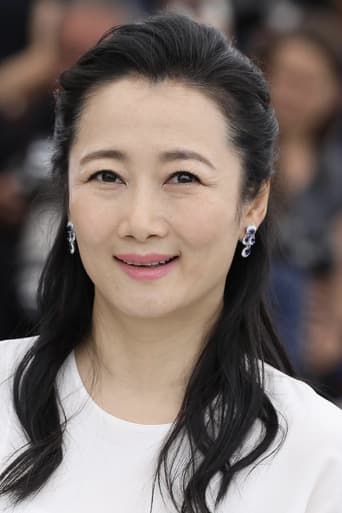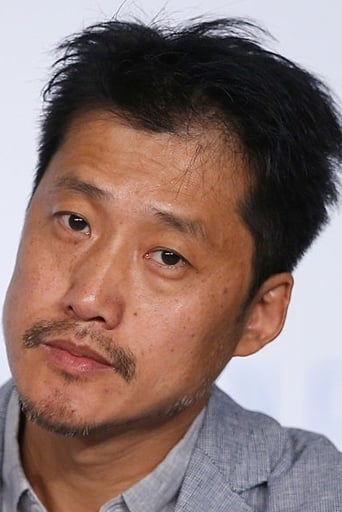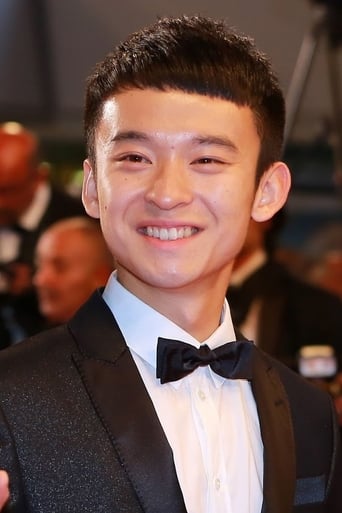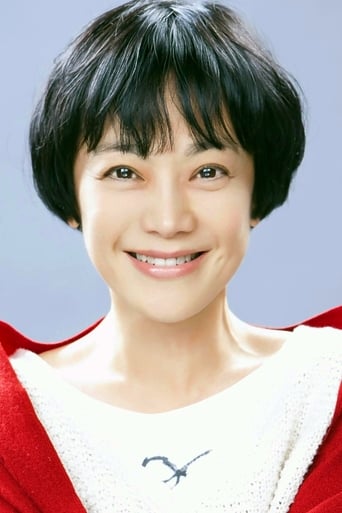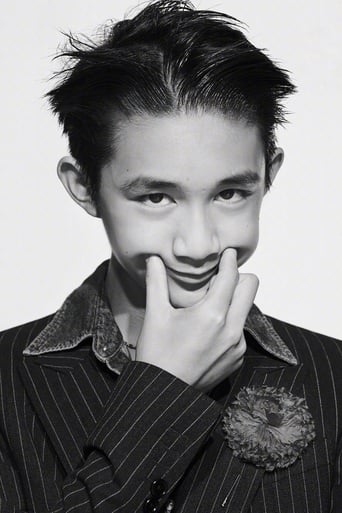ThiefHott
Too much of everything
Kien Navarro
Exactly the movie you think it is, but not the movie you want it to be.
Allison Davies
The film never slows down or bores, plunging from one harrowing sequence to the next.
Philippa
All of these films share one commonality, that being a kind of emotional center that humanizes a cast of monsters.
Reno Rangan
When everybody around me liked the director's previous film 'A Touch of Sin', I didn't. As a film fanatic, reject such kind of film is not an easy job without giving a proper reason. I thought that was a missed opportunity. I surely like art films, not the boring one like those aimlessly narrated. I really loved some of the scenes there, but here it was completely different. Most importantly, anybody would understand what the film is trying to say without trying too hard.This is a theme where the China's rise was revealed from the three people's personal life perspective that was categorised to the three generations or the timelines. That's not it, the communism was also highlighted, how it held back the people's freedom. The writer was really smart to smoothly disclosing that to the world. I mean the film never dragged the China's ruling party or its system, but all were told from its character who struggled and if you use your brain, you will get it why.The narration was divided into three episodes. The first one takes place in the year 1999, in a small town somewhere in the China which is economically backward. The story follows a young woman named Tao, who is caught in a love triangle. But for the practical reason, she has to choose one of them and when she does, the other guy leaves the town with the heartbroken. This is the foundation, that dragged for nearly 40 minutes. Obviously slow, but very realistic approach.I grew up in the 90s, my country was not much different than what's in this film was shown. So I liked the atmosphere, all those the 90s set, the automobiles, lifestyle, the landscapes of the small towns et cetera taken me back to that time. But the thing is, it was China, society and culturally different. Anyway, it was past and what follows are totally flips the narration, including the perspective."You know the hardest thing, about love is caring."The second episode takes place in the year 2014, which is something like the present. It reveals what's the status of all the main three characters, like where they're economically standing and the personal life struggles. Tao's married life did not go well and her son is around ten years old who visits her from Shanghai. The one who left the town is now returned and battling for his life for some reason.In the last 15 years, the China significantly changed and still, this entire part is set in the same town which is now economically moved forward. Like the changing urban landscape, how these characters too changed were what focused on this section.Then comes the final episode where it is now in the year 2025, that takes place somewhere in the Australia. The perspective was changed, the little boy is now in his 20s, seems lost is root. With his behaviour, you would notice that his lack of knowledge about his ancestors. He who has the differences with his father, decides to make his life as he wanted. That is why the parents should take responsibility to teach their children all the good things about their culture and traditions, and to carry on, it's up to them. Because losing one's identity could lead to the failures in the life.This is the part I liked better. Because it was something like what I encountered in my life. Most of the childhood memories that returns after we're grown-up as the deja vu, like the history repeating itself. Here for pointing out the freedom one to buy a gun was indirectly hit the communism. I mean gun was not a threat, it was just an expressed how it affects people in all the similar circumstances. I meant, what something was hidden brings more eagerness for us to know about it than those are in the out. So forcing something on people is sometime is a bad idea.All the actors were good, but apart from the slow screenplay, I liked the idea of this film. There are some other similar films, like how different generations behave and now this is among them, yet not the best out of all of them. Very much watchable, only if you are capable of handling slow drag. If you know this director very well or the fan of his works, you will find it a pretty interesting film. I won't recommend it, but I also won't either suggest you to skip it.7.5/10
JvH48
Saw this movie at the Rotterdam film festival (IFFR.COM) 2016. From the same film maker I saw A Touch of Sin in 2013 (saw it even twice), which experience I found marginally satisfactory (score 6/10), contrary to all positive reviews I've read before and after. I was prepared to give this successor movie as of 2015 a second chance, as it promises much more due to its intention to not only showcase a contemporary China, but also how it has changed/will change over a time span of 25 years. A daring undertaking, particularly as it is not easy to predict what the future looks like over 10 years.Overall I had three general issues. Firstly, I saw unsympathetic characters all over, none of them possible to sympathize with (maybe only Dollar, as he is the product of the others, hence not guilty). Secondly, I saw an illogical story line from begin to end. And thirdly I saw unnatural acting, of which I assume it is typically how Chinese actors behave? (I remember this vaguely from an earlier experience like this, when we were told in the final Q&A that this form of over-acting is normal in China). And I had a fourth issue, last but not least: the bold but failed attempt to cover 25 years (1999, 2014 and 2025). This time span is too large for us to jump through, needing time to pick the differences and the similarities. Especially a miserable attempt was to visualize the future (10 years ahead), because what we saw was not really futuristic and merely a slightly upgraded image of the present. A novel view on a possible future is always interesting, thought provoking at the least. Alas, this one was laughable and underestimated what can happen in 10 years time.Both movies of this film maker show that he is able to deliver an impressive product, both very watchable, but somehow neither landed with me considering its contents. Being interested in far-away countries where we know not much about, movies like this pique my interest and are more informative than what a superficial 3-weeks holiday can ever provide. A film festival like this offers an easy and accessible means to look around in the world.
Adam Parks
'Mountains May Depart' does make audiences aware of its 131-minute runtime by a ostensibly prolonged third act that, despite possibly being in roughly equal length to its previous counterparts, trudges while following Dollar almost exclusively. As opposed to Tao, who's arguably the protagonist, I admittedly longed for more of Zhao's vigorously human display, breaking down into tears just as easily as striding with poise and zeal. In the acclaimed director's 7th feature film, Zhangke Jia has attributed epic scale and profoundly relevant ideas to the classic, albeit modernly exhausted, love triangle conflict. Through subtle use of tech, Jia supplies a new pair of eyes – proving it's not what we view, but how we view the world, cultures and people around us.FULL REVIEW HERE: http://indieadam.com/2015/09/17/mountains-may-depart-review- indieadam-tiff-2015/
Sergeant_Tibbs
Mountains May Depart starts on perhaps my favourite opening shot of the year. Kicking it off with the Pet Shop Boys' vibrant song "Go West," we're straight in the middle of a dance routine with a room full of people clumsily bopping in sync. It's infectious and filled with unbridled hope and joy. Unfortunately, it's downhill from here, though the film is never aiming for the same type of exuberance. I'm not familiar with Jia Zhangke or his following – Walter Salles apparently has a hotly anticipated documentary about the director at this festival – but Mountains May Depart seems like an endearing and accessible introduction. Telling three stories in three separate time periods, I do enjoy the way it explores causality in how these small relationships and dramas at one time can feed into a dilemma 25 years later.The first story, set during the turn of the century in 1999 when Chinese capitalism was healthy, follows a love triangle between Tao, an aerobics instructor, Zhang, an egotistic entrepreneur, and Liangzi, a man who works for Zhang. The three hang out as friends but Zhang can't bear the idea of Tao getting close to Liangzi and despite emotional logic, it's social economical pressures that make decisions. Cut to 2014, Tao and her beau have divorced and she's now estranged from her son. Upon the death of her father, her son is forced to visit and she must make the decision of how connected she should be to him throughout his life. Then off to an imagined Australia in 2025, her son doesn't remember her and currently struggles with his relationship with his father where they now have a language barrier. With the help of a teacher he grows attached to, he goes in search for Tao.Each section of the film is approached in a different way, reminiscent of the way last year's The Grand Budapest Hotel and Mommy played with ratios. The first section is a tight 4:3, the second is a full frame, and the third is widescreen. However, these feel like they represent the period and the environment moreso than the character's emotions, with exception to the mid- section, which ideally captures Tao's regret and longing. It's a mixed bag depending on the talent, with some tender moments landing strong and some clumsily misguided, the latter most prominent in the last section. That first section has a bait and switch for the decades long heartache that the seemingly innocent love triangle causes. The theme of how people drift apart no matter how close they are resonates but it's unbearably melancholic without Zhangke offering much of a satisfying a silver lining.It's a shame that despite the film's strengths it has too many loose ends and unnecessary moments that don't appear to add to the character arcs or the themes. With a 25 year story like this where no single character carries us through the whole film, every moment has to count to something. There's little justification as to why the third section is in glorious widescreen and set in Australia, but perhaps this just speaks to how disconnected it is from the rest of the film. While mostly drenched in Chinese culture, I wish Zhangke didn't resort to certain American clichés such as sad montages of characters having deep thoughts set to music. However, with those time gaps, Zhangke does harness a powerful nostalgic through just a few song motifs carried through all three sections that are well executed. Both disarmingly simple and complex, his ambition is admirable, but it doesn't quite reach the potential that this expanse allows it to travel.7/10Read more @ The Awards Circuit (http://www.awardscircuit.com/)



